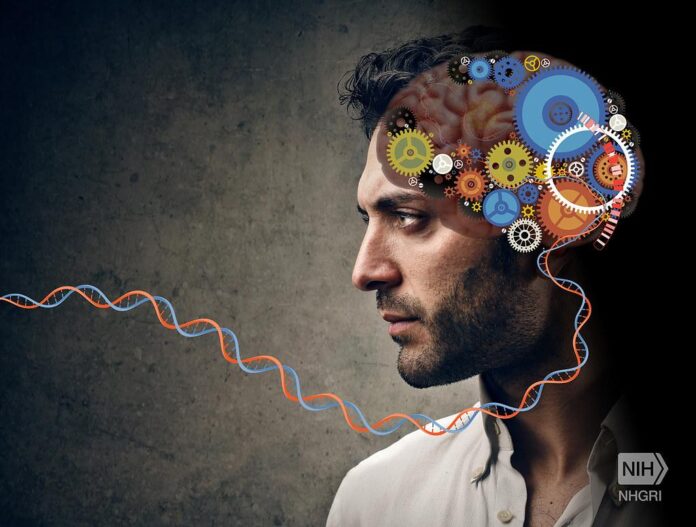
Schizophrenia is a serious mental disorder that affects how a person thinks, feels, and behaves. It is characterized by a range of symptoms that can be debilitating and can significantly impact an individual’s ability to function in daily life. While the exact cause of schizophrenia is not fully understood, it is believed to be a combination of genetic, brain chemistry, and environmental factors.
Recognizing the symptoms of schizophrenia is crucial for early intervention and treatment. In this article, we will explore the common symptoms of schizophrenia and how they can manifest in individuals.
1. Delusions
Delusions are false beliefs that are not based in reality. Individuals with schizophrenia may experience delusions that are paranoid, grandiose, or bizarre in nature. They may believe that they are being persecuted, that they have special powers, or that they are being controlled by external forces. Delusions can significantly impact a person’s behavior and can cause distress and impairment in daily functioning.
It is important to note that individuals with schizophrenia firmly believe in their delusions and cannot be convinced otherwise, even with evidence to the contrary.
2. Hallucinations
Hallucinations are sensory perceptions that occur without any external stimuli. In schizophrenia, hallucinations are most commonly auditory, but can also be visual, olfactory, or tactile. Individuals may hear voices that are not there, see things that are not real, or feel sensations that have no external cause. Hallucinations can be distressing and can have a profound impact on a person’s perception of reality.
It is important to seek help if you or someone you know is experiencing hallucinations, as they can be indicative of an underlying mental health condition such as schizophrenia.
3. Disorganized thinking and speech
Disorganized thinking and speech are common symptoms of schizophrenia. Individuals may have difficulty organizing their thoughts and may have trouble speaking coherently. Their speech may be disorganized and may include tangential or unrelated ideas. This can make it difficult for others to understand and communicate with the individual.
Disorganized thinking and speech can have a significant impact on a person’s ability to function in social and occupational settings. It is important to seek professional help if you or someone you know is experiencing these symptoms.
4. Grossly disorganized or abnormal motor behavior
Individuals with schizophrenia may exhibit grossly disorganized or abnormal motor behavior. This can manifest as unusual or inappropriate movements, catatonic behavior, or a lack of response to the environment. These behaviors can be unpredictable and can make it difficult for the individual to engage in daily activities.
It is important to seek help if you notice any abnormal motor behavior in yourself or someone else, as it may be indicative of a serious mental health condition such as schizophrenia.
5. Negative symptoms
Negative symptoms refer to a reduction or absence of normal functioning. This can include a lack of motivation, anhedonia (inability to experience pleasure), social withdrawal, and diminished emotional expression. These symptoms can be particularly debilitating and can have a significant impact on a person’s quality of life.
It is important to seek professional help if you or someone you know is experiencing negative symptoms, as they can be indicative of an underlying mental health condition such as schizophrenia.
6. Cognitive symptoms
In addition to the above-mentioned symptoms, schizophrenia can also cause cognitive impairments such as trouble focusing or paying attention, problems with working memory, and difficulty understanding and using information. These symptoms can make it difficult for individuals to process and retain information, and can significantly impact their ability to function in daily life.
If you or someone you know is experiencing cognitive symptoms, it is important to seek professional help, as they can be indicative of an underlying mental health condition such as schizophrenia.
7. Lack of insight
Individuals with schizophrenia may lack insight into their condition and may not recognize that they have a mental illness. This can make it challenging for them to seek help and engage in treatment. Lack of insight can also lead to non-adherence to medication and other treatments, which can worsen the symptoms of schizophrenia.
If you or someone you know is showing signs of lack of insight into their condition, it is crucial to seek professional help and support to ensure proper treatment and management of the symptoms.
8. Social and occupational dysfunction
Schizophrenia can cause significant impairment in social and occupational functioning. Individuals may have difficulty maintaining relationships, performing at work or school, and participating in daily activities. This can lead to isolation, unemployment, and an overall decrease in quality of life.
If you or someone you know is experiencing social and occupational dysfunction, it is important to seek help from mental health professionals to develop a comprehensive treatment plan.
9. Inability to process emotions
Individuals with schizophrenia may have difficulty processing and expressing emotions. This can manifest as a lack of emotional responsiveness, inappropriate emotional responses, or difficulty understanding and relating to the emotions of others. Inability to process emotions can have a profound impact on a person’s relationships and social interactions.
If you or someone you know is experiencing difficulty processing emotions, it is important to seek professional help to address and manage these symptoms.
10. Substance abuse
Substance abuse is common among individuals with schizophrenia. This can be a result of self-medication to cope with the symptoms of the disorder, or it can exacerbate the symptoms and lead to further impairment in functioning. Substance abuse can complicate the treatment of schizophrenia and can lead to a poor prognosis if left untreated.
If you or someone you know is struggling with substance abuse in addition to symptoms of schizophrenia, it is important to seek help from mental health professionals who specialize in co-occurring disorders.

















